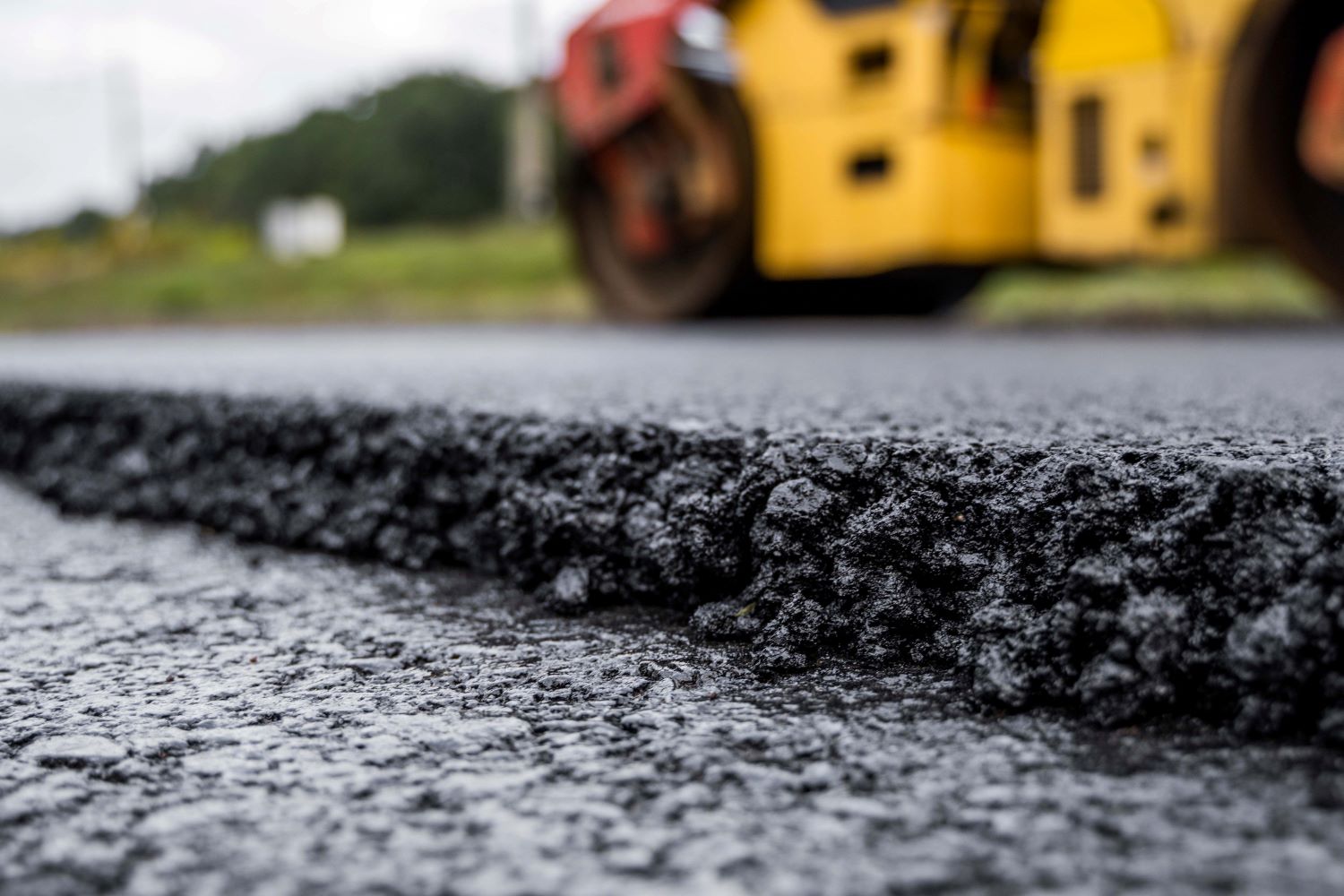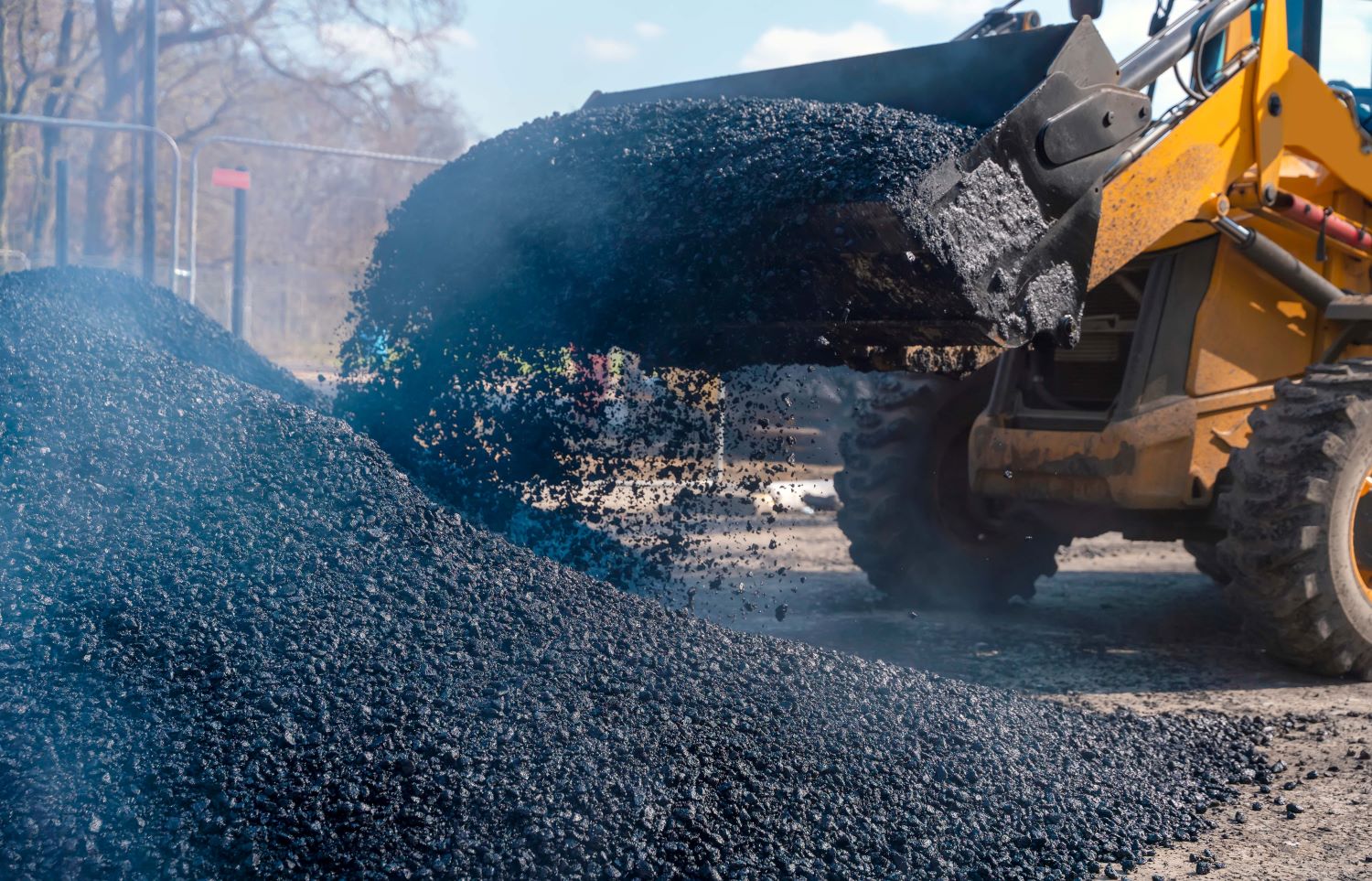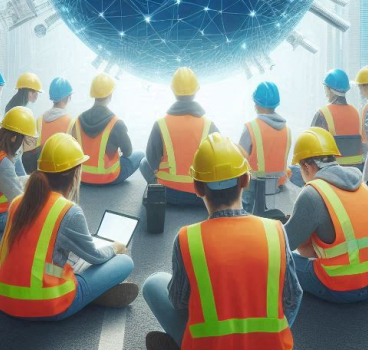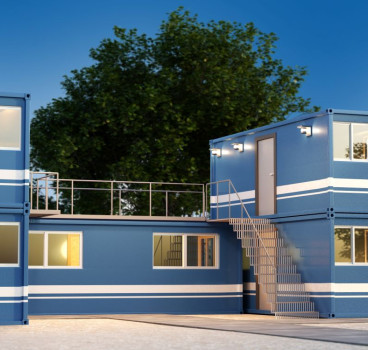How the “black stuff” is paving the way to sustainability
Asphalt, that ubiquitous black surface, coating our roads, pavements and car parks, is often seen as a necessary, but somewhat unremarkable material. However, ongoing advancements in asphalt technology are paving the way for a more sustainable future, making the black stuff – or modern asphalt - an increasingly attractive option for environmentally conscious construction projects, writes John Ridgeway.
Modern asphalt has immense potential to contribute to a more sustainable construction industry. Ongoing advancements in asphalt recycling, for example, are allowing for even higher percentages of recycled asphalt pavement RAP to be used, further reducing reliance on virgin materials.
It must be noted that using RAP in new asphalt pavements has been practiced for several decades. However, these advancements in processing techniques and a growing awareness of its environmental benefits have now made this practice far more widespread.
Researchers are also exploring the potential of self-healing asphalt that incorporates microcapsules containing healing agents. These capsules release an agent when cracks appear, potentially extending the lifespan of pavements.
The exact date for the introduction of "modern asphalt" as it has become known, is a bit tricky to pinpoint. It's not a single invention, but rather the culmination of various advancements in asphalt technology over time.
Warm Mix Asphalt (WMA), for example, emerged in the 1990s in Europe and North America. While the specific technology continues to evolve, the core idea of reducing mixing temperatures is not new. This technology reduces the mixing temperature of asphalt by 30-50 degrees Celsius. This not only lowers energy consumption during production but also reduces harmful emissions like greenhouse gases and volatile organic compounds (VOCs).
So, we can see that, "modern asphalt" is not a single invention with a specific date, but rather a collection of evolving technologies. While some core concepts have been around for many years, the widespread adoption and integration of these technologies into mainstream construction practices is a more recent phenomenon.
Environmental benefits
That said, modern asphalt offers significant environmental advantages over conventional asphalt, particularly in delivering a reduced carbon footprint. Lower production temperatures translate to lower energy consumption and reduced greenhouse gas emissions. Additionally, using RAP, as already highlighted, conserves virgin materials and reduces the environmental impact of extraction and transportation.

Lower production temperatures of WMA also contribute to reduced emissions of VOCs, which are precursors to smog. Permeable asphalt, another development, further improves air quality by reducing reliance on traditional stormwater management systems that often lead to air and water pollution.
Permeable asphalt also helps mitigate the effects of stormwater runoff. By allowing rainwater to infiltrate the ground, it reduces strain on storm sewer systems, minimises flooding risks, and replenishes groundwater resources.
Modern asphalt can also deliver a reduced heat island effect. Traditional asphalt absorbs and retains heat, but techniques like using lighter-coloured aggregates and incorporating reflective additives can help mitigate this issue.
Modern Asphalt in Action: Real-World Examples
Modern asphalt isn't just a theoretical concept – it's being used in real-world projects across the globe. WMA has been successfully employed in numerous projects throughout the United States and Europe. The Federal Highway Administration (FHWA) in the U.S. has actively promoted WMA usage, recognising its environmental benefits.
RAP usage, as already discussed, is becoming increasingly common as a sustainable construction practice. Many countries, including the United States, have established guidelines and specifications for incorporating RAP into new asphalt mixes.
Permeable asphalt is increasingly finding applications in car parks, pavements and low-traffic roadways. The Walt Disney World Resort in Florida boasts a network of permeable asphalt walkways, demonstrating its suitability for large-scale projects.
Quiet asphalt pavements are being used more and more in noise-sensitive areas like residential neighbourhoods and around schools. The European Union has even established regulations promoting the use of quiet pavements.
While the initial cost of modern asphalt might be slightly higher than conventional asphalt due to factors like using WMA or incorporating RAP processing, the long-term benefits often outweigh the upfront investment.
Modern asphalt often boasts superior durability and performance compared to conventional asphalt. This translates to lower maintenance costs over the lifespan of the pavement. WMA's lower production temperatures lead to energy savings during construction. Additionally, permeable asphalt can reduce reliance on traditional stormwater management systems, leading to further cost reductions.
As environmental regulations become stricter, the use of conventional asphalt might become more expensive due to potential carbon taxes or restrictions on emissions. Modern asphalt, with its lower environmental impact, could become the more cost-effective option in the long run.
Industry Champions
Modern asphalt is not a secret technology. Leading construction and paving companies around the world are actively incorporating it into their projects. Here are a few examples:
Eurovia, a global leader in infrastructure construction uses WMA and RAP extensively. They have implemented sustainable asphalt solutions on projects across Europe and North America. Colas, another major player in the construction industry, is committed to sustainable asphalt practices and offer a range of innovative asphalt solutions, including WMA and permeable pavements. Herzog Contracting Corporation, an American construction company is known for its commitment to sustainable practices. They have successfully implemented WMA and RAP in numerous road construction projects across the US.
All this means that modern asphalt offers a compelling solution for a more sustainable future. By incorporating innovative technologies and materials, it reduces environmental impact, improves air and water quality and conserves resources. As the construction industry embraces modern asphalt practices, we can pave the way for a more sustainable future – that is the beauty of the black stuff..
Sources:
- https://www.fhwa.dot.gov/innovation/everydaycounts/edc-1/wma.cfm
- https://www.ncbi.nlm.nih.gov/pmc/articles/PMC7865384/
- https://www.eurovia.fr/
- https://www.colasconstruction.com/
- https://www.herzog.com/location/rail-highway-construction-company/
- (https://www.degruyter.com/document/doi/10.1515/rams-2022-0331/html

Additional Blogs

Are apprenticeships a real investment in skills or just cheap labour?
Spend any time in the construction sector and you’ll hear the same two conversations running in parallel. The first is about the skills shortage with ageing trades, retirements outpacing recruitment,...
Read moreShould governments subsidise modular construction to solve the housing crisis?
There’s something deeply uncomfortable about the way we talk about the housing crisis in Britain. We describe it as “chronic”, “systemic”, “complex”. We commission reviews. We announce targets. We...
Read more

Do BREEAM and LEED really make buildings better?
Walk into the reception of any new office block and you’ll usually see it, framed proudly behind the desk - a certificate, stating BREEAM Excellent or LEED Gold - sometimes Platinum, if the developer...
Read more